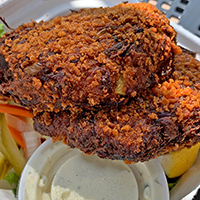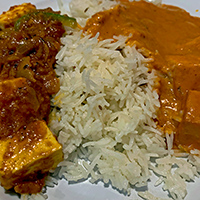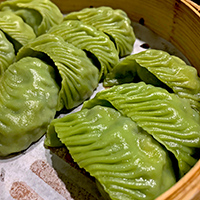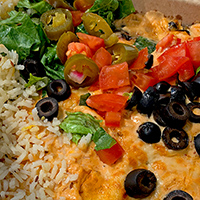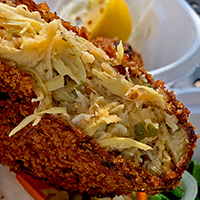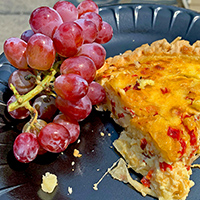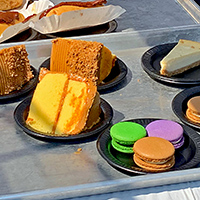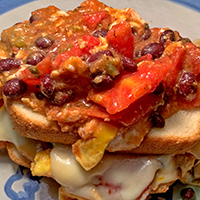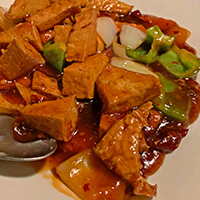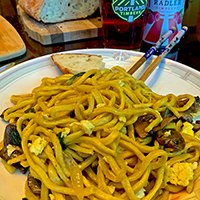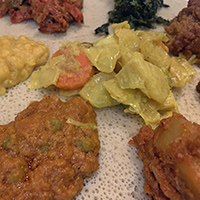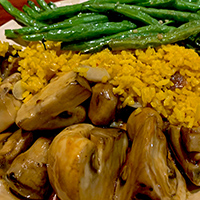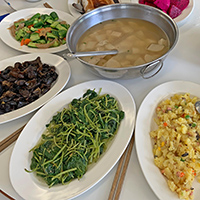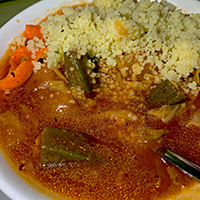OBJECTIVES By the end of this session you will be able to:
|
Tasks for this session
Before the start of our fifteenth class meeting:
Read
If you did not already do so during the 13th session, at the start of the 14th session you must submit to your classmates their papers withyour edits and comments. People need to use the 14th session to revise their papers.
Watch and Listen
There are no assigned videos or podcasts or lectures.
Tasks
Activity One
Our class for the 13th session is on Zoom. We will meet with Zoom at 6:00pm on November 17. For the 14th sesion, as it occurs on the week of Thanksgiving, just participate on the discussion boards on Canvas. There sill be no Zoom or classroom meeting.
Activity Two
Revise and edit your Grand Challenges paper.
If you haven’t already done so, check out the guide to writing such papers.
as PDF, Word, or Pages.
Check out the examples of some good papers.
as Word or Pages.
Use or consult the template for writing
the papers and for your learning journal.
As Word or Pages.
Activity Three
Continue working on your third experiential learning assignment. Be active in your participation with a group, observe the group, and think about how what we are learning in this class could be applied with the group you are active with, and write in your learning journal about this.
Activity Four
Work on finishing your learning journal, and make sure you have completed all the things you were supposed to compelte. Use or consult the template for writing
the papers and for your learning journal. which is available in Word or Pages format. You do not need to use the template, but if you follow along with the template you will know whether you have done all that I expect you to do in the learning journal.
Activity Five
Prepare your presentation so that in our 15th class session class meeting (on Zoom) you will be able to give a five-to-ten minute presentation.
During Class Session 14, this is what we will do:
1. Check in.
2. Discuss any macro practice that has been in the news.
3.
Session Time Budget
3h 30m |
Canvas Discussion Board participation |
5h |
Edit and revise your Grand Challenges paper |
1h |
Work on your presentation of your Grand Challenges Paper. |
1h |
Continue your participation in a group or organization so that you can use this participation to inform your thinking with practical applications of what we are learning in this class. You probably should be writing about your experience in your journal by now. This is your Third Experiential Learning Assignment |
1h |
Work on writing up your learning journal. |
Discussion Board Questions (Activity One)
Go into Canvas, log in, and respond to the discussion questions for this session.
These are:
DQ 14-1: Check In
Check in for the fourteenth week of the semester. In addition to letting us know how you are, please tell us something about your favorite games. You could mention board games you have enjoyed playing, sports games, computer games, video games, card games, and so forth. You might tell us generally what sort of games you like, or specifically name favorite games. You might tell us why you like the games.
Discussion Question 14-2: what have you learned while working on your paper?
As you were researching to write your grand challenges paper, what were three things you learned that you would want social workers or the general public to know. To answer this, imagine you are at a family gathering, or having a conversation with an old friend, and someone who knows you well asks, with some mild curiosity, what you learned when you wrote your grand challenges paper. You don't want to bore them, but you want to give them a few important insights or facts that will help them understand the problem and the likely solution. What do you tell them?
Discussion Question 14-3: What have you learned about techniques and skills?
Based on what you have learned from the United States Institute for Peace courses, the reading of Michal Jacoby Brown's book Building Powerful Community Organizations, reading several chapters in Obama's Dreams from My Father, watching one of the feature films, watching a set of the documentaries, and watching the Salt of the Earth film, and participating in our class discussions, and working on your experiential learning assignments, and your research and thinking devoted to creating your grand challenges paper, what have you learned about the techniques of macro practice social work? That is, can you tell us about four or five techniques social workers use in macro practice, and say something about what those techniques look like, perhaps giving an example you've seen or read about or heard about? Or, make up an example to illustrate some of those techniques.
Discussion Question 14-4: What do you know about social change movements?
There have been many movements in the past 110 years since social work began as an official profession. I have a list here, but can you think of some movements that are left off this list? (I intend general and broad movements, and not narrow movements for very specific or local issue). For example, I don't have the “consumer rights” movement on this list, and no adult-education or literacy movement, and no “wellness” movement, and no mental health movement. Are those movements? Should I include those? What else have I left off?
And, for the second part of the question, what sort of involvement have social workers had with these movements? Are there some where you know that social workers had some places in leadership or strong supporting involvement? Which are those in which social workers have been leaders? Are there some where you don't know anything about any social workers being involved with the movement? Which are those where social workers have not, as far as you know, been strongly committed?
The list of movements:
- Civil rights movements to end discrimination and segregation in housing, employment, services, and business.
- Civil rights movement to desegregate schools and achieve fairness in funding and admissions requirements for schools.
- Civil rights movement to allow everyone to vote.
- Immigrants rights movements to create a humane and fair immigration policy, and reduce the exploitation and oppression of immigrants.
- Race amity movements to create genuine feelings of affection, respect, and unity among people of different races, to promote interracial and interethnic friendship, partnership, marriage, and the integration of places of worship, social organizations, and all industries and professions.
- Anti-racism movements to reduce prejudice and bias; detect and stop bias in policing, prosecuting, sentencing, lending, insuring, promotions, hiring, school admission, renting, and school discipline. Reduce insulting language and micro-aggressions to protect members of oppressed groups from stress and physiological harm leading to disparities in health and life expectation.
- First wave feminism to get women the vote.
- Second wave feminism to remove barriers to women having equal rights with men and equal treatment. Equal pay for equal work. Women allowed to enter all occupations. Women to not be excluded from activities men do. Men to take over some degree of what had been considered “women’s work” to equalize domestic labor and the responsibilities for reproduction of labor (child-rearing). Also, establishing and protecting the privacy for women and their health care professionals (allowing choice in reproductive health).
- Third wave feminism to gain control over cultural work that produces notions of what womanhood, gender, beauty, sexuality, femininity, and masculinity mean. The struggle to make everyone aware of how tradition and society feed our minds with concepts and stereotypes to which we are asked to conform, and promotion of the opinion that the full development of our personalities requires us to consciously and intentionally reject (or embrace, if we choose) the expectations placed upon us by social norms.
- The first wave environmental movement to set aside land to preserve wilderness and wildlife habitat, to encourage respect for nature and animals, and the movement to keep our air and water and land clean, and force polluters to reduce their injurious degradation of the quality of air, water, and land.
- The second wave environmentalism to recognize animal rights and the value and rights of ecosystems and nature in general; the movement to see all life as interconnected and reduce our human impact on nature.
- The third wave environmentalism to greatly reduce our output of greenhouse gasses or cease activities that result in increases of greenhouse gasses; the desperate attempt to avoid raising average global temperatures to points where food or fresh water is unavailable to tens or hundreds of millions, causing instability, mass migration, famine, and the potential collapse of societies.
- The peace movement to cease American involvement in southeast Asian wars such as the Vietnam wars.
- The peace movement to cease American support for death squads, terrorists, and murderous dictators in Latin America.
- The peace movement to prevent the American-led invasion of Iraq, and to get America out of Iraq.
- The peace movement to shift priorities away from military spending and toward diplomacy, foreign aid, and programs to address domestic problems.
- The anti-poverty movement to enact policies to eliminate poverty, either through policies to create full employment and guarantees of employment or else minimum basic incomes or else through a system of welfare programs that bring every American up to a standard of living and consumption that exceeds the poverty level.
- The human rights movement to force American politicians to enact policies and services that will ensure that all Americas enjoy all the human rights mentioned in the Universal Declaration of Human Rights. The movement to encourage American foreign policy to prioritize human rights, allowing trade and support with governments that respect human rights, and putting up trade barriers and ceasing support for governments that abuse the human rights of their citizens.
- The movement to make all physical spaces accessible to persons who live with physical impairments that make them reliant on assertive technologies to move.
- The movement to include persons with mental or physical impairments to enjoy full participation in public life and culture, to the degree they are able to contribute to the creation of—and take pleasure from—cultural and recreational life of society.
- The anti-violence movement to create a culture in which fighting, bullying, domestic violence, and all forms of violent crimes are dramatically reduced.
- The gun control movement to restrict access to weapons unlikely to be used for hunting and more likely to be used in homicide or suicide; restrictions on who can own guns; restrictions on which sort of guns or ammunition can be purchased.
- The free speech movement to promote the first amendment rights to free speech, attacking laws used to restrict speech or artistic expression.
- The movement to assure universal access to health care. The promotion of the idea that basic health care and health insurance are human rights.
- The amateur and youth sports movement, to create and sustain recreational leagues for children, youth, and adults to have fun together playing sports and games, and to promote healthy pastimes involving exercise and teamwork through sport.
- The community arts movement, to promote community theater, local area arts alliances, local bands or orchestras, and classes to promote hobbies and recreational pursuit of fine arts or participation in creation of arts.
- The labor movement to promote solidarity and unionization among workers so that power will be balanced between: 1) the interests of those who work for wages and salaries without being in the management or ownership class, and 2) the interests of those in administrator and capitalist classes; ensuring that working conditions and compensation for labor can be set at levels that are fair to both sides, instead of being one-sided in favor of the interests of the owners and managers.
- The green movement and various religious movements against materialism; movements that encourage people to see value in recreation, appreciation of the aesthetics of nature or art, and the quality of their relationships, and not seek fulfillment through accumulation of durable goods and status symbols. The push to move away from consumption and commercialization and commodification of all aspects of life. The movement to reduce the extraction and consumption of natural resources, so that people will be less of a burden on the planet.
- The Black Lives Matter movement to put a stop to police mistreatment of non-European-Americans and the killing of unarmed and unthreatening African-Americans.
- The anti-lynching and anti-pogrom movement launched in response to the Springfield Race Riot and similar terroristic pogroms in places like Atlanta, East St. Louis, Tulsa, and Omaha.
- The Child Protection efforts, including the fight against child labor, the creation of a system of welfare supports for children from poor families, and the development and improvement of systems of child protection, family services, foster care, adoption, and rehabilitation of delinquent youth.
DQ 14-5: Policy processes and the harms and benefits they bring
Explain how diverse groups (such as women, persons with disabilities, persons form historically oppressed minorities, and members of marginalized groups) have their lives enhanced or diminished by public policy processes.
For example, think of the misery or trouble faced by one of those groups, and think of how a policy could remove or reduce the misery and difficulty, and think of why such a policy has not been passed or implemented. What is it about the public policy process that has prevented a solution to the problem or a solution to the misery suffered by members of that group?
Think about how the public policy process has brought some benefits or good things to persons in a diverse group, What is it about the public policy process that allowed a policy or service to be created that helped persons in that group?
Discussion Question 14-6: How do you choose what you prefer?
When it comes to decision-making and your personal preferences for how social welfare organizations should be administered, or how social policies should be implemented, or which sort of policies to promote health or mental health (prevent disease or mental illness) ought to be funded, what are your methods for deciding which things you like and which things you dislike?
Think of that question you asked the powerful people you know, where you asked them how they decide what to support and how to invest their time in making the world a better place. There are many good causes, and many thing that need to be done in the world. The level of human misery is immersible and horrifically daunting. So, how do you make up your mind where you will apply your skills and energy? When it's just a matter of how to vote in elections, or how what to share with friends in social media, or what to write to someone in political office, what leads you to support or oppose something?
Think of your process of decision-making as you answer this question. To some degree you have values and emotions connected to your values. What are some fo the things that elicit more emotional reactions from you? To some degree you are becoming a professional social worker, or at least in the process of becoming one. As a professional, you will have a preference for evidence, rational argument, plausibility, feasibility, consequences, and other aspects of policy that require critical thinking and analysis. What are some of the things you look for as signals to you that a policy is worthy of support or opposition? So long as you are not entirely disengaged from politics, you probably have some preferences for certain thinkers, news outlets, pundits, politicians and expert; and to some degree you may use the positions taken by those whom you respect and admire to guide your thinking. For example, if NASW takes a stand on an issue, does that influence your thinking about the issue? As Michael Jacoby Brown pointed out, we all have family stories and personal narratives about our lives, and the injustices or problems we (or those we are close to) have faced may shape our priorities and opinions. For example, I am in favor of almost anything that will provide services to households dealing with old-age dementia, or any money funding research into treatments for Alzheimer's disease or Lewy Body Disease, and this is partly because my father and some of my grandparents suffered from dementia late in life. What about your personal stories?
The point of this discussion question is for us to think about how we make decisions about engagement in macro practice. Reflecting on our own process of decision-making and our own priorities and values and analytical processes will help us have empathy for how others may be considering the things as we ask for their support in some cause or movement.
Discussion Question 14-7: What inspires you?
Give five examples of activism in (or involving) the social work profession that you find most inspiring or awesome. These may be historical examples, or current activism.
For example, someone might say:
1) social work professional involvement in the Civil Rights Movement of the 1950s-1980s;
2) the work of social workers to change society’s views of sexual and gender identity minorities;
3) the history of social workers around the world getting involved in protecting the rights of children and generally advocating that those with power devote public resources toward the well-being and safety of children;
4) the work of social workers in community organizations to help communities of marginalized or oppressed people to gain power and improve their lives; and
5) the work of social workers in attempting to make our culture more inclusive and accepting, so that persons with various sorts of disabilities can be included and accepted in the cultural life of our communities, our education systems, and our economy.
So, what goes on your list?
Interesting Stuff To Explore (optional stuff)
- How to give a killer presentation
- How to give a good presentation (Bahar Martonosi) [pdf]
- Ten tips for giving a great presentation (Hanne Keiling)
- Online Presentation Tools
- Google Slides
- Five tips for delivering Zoom presentations like a pro (14 minutes)
- Patrick Winston’s “How to Speak” (1 hour 4 minutes)
- Voice-over PowerPoint Best Practices (12 minutes)
Come to the next class ready.
Our 14th class is scheduled for November 23rd. I will give you time to prepare your paper, your presentation on your Grand Challenge, and finishing up your experiential learning assignments, so we will not have Zoom class on the 23rd. However, we will get together on November 30th on Zoom. Be ready to give your presentation.



